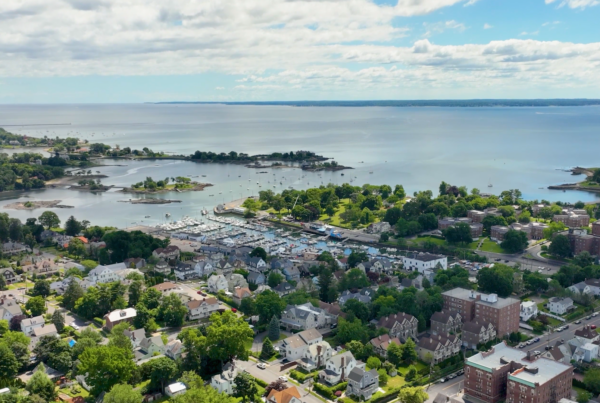A plot of virtual land in a digital world selling for a significant sum may sound like science fiction, but the metaverse is here to stay–and it’s already changing the way we think about real estate.
When Tokens.com–a company that invests in revenue-generating cryptocurrencies–purchased “land” in November 2021 for $2.5 million on Decentraland, a virtual world (more on this below), it led many in the industry to wonder if this was the new frontier of real estate. So, what is the metaverse, and what does it mean for the future of real estate? Knightsbridge Park breaks it down for you here.
What Exactly Is the Metaverse?
Still very much in its infancy, the metaverse is difficult to define with any precision. One way to think about it is as a world composed of multiple, interconnected digital realms populated by avatars who live, work, and play in 3D virtual cities.
The term “metaverse” was first coined by author Neal Stephenson in his 1992 sci-fi novel, Snow Crash, and rose to prominence again last year when Facebook’s Mark Zuckerberg laid out his vision for the metaverse as an “embodied internet”: a place where users will experience a “feeling of presence” in the digital realm that’s almost as real as the real world itself.
Decentraland and That Landmark Deal
Decentraland is described as “a virtual destination for digital assets.” The finite, traversable, 3D virtual space within Decentraland is called, quite predictably, “LAND” and is divided into “parcels” that are available for purchase. Each land parcel is an NFT (non-fungible token), meaning that it is unique and cannot be duplicated or forged–much like land in the physical realm.
Tokens.com’s acquisition of a 116-parcel estate in Decentraland’s forthcoming Fashion District is equivalent to a total of approximately 6,000 square feet. This deal, which is estimated at $2.5 million, represents the most significant land acquisition in the metaverse to date. So, it appears that in the same way that buildings in, say, SoHo in New York City or Rodeo Drive in LA are highly valued, properties in desirable locations within the metaverse can command a premium as well.
But what does Tokens.com plan to do with such a valuable piece of virtual property, you might ask? According to a recent statement, the “land” will be used to stage Decentraland Fashion Week over four days at the end of March 2022. The first of its kind, this virtual event is expected to attract “some of the biggest fashion brands in the world.”
And quick to recognize the boundless opportunities that exist in the space, metaverse real estate companies are already coming to the fore. Metaverse Property, a frontrunner, was established to buy and sell virtual real estate across the metaverse and recently earned $1.7 million for a 50% stake in its company, which points to a market buoyed up by the potential for strong returns.
Passing Fad or the Next Real Estate Boom? What This Means for You.
It’s still too early to determine what impact the metaverse will have on real estate. Bullish investors aside, using cryptocurrencies to acquire virtual land remains “highly speculative,” according to a recent article in the New York Times.
As tech giants like Facebook, Microsoft, and others allocate huge resources to shaping the future of this virtual world, the metaverse may well realize its aspiration to become as content-rich as the real world. But it’s not yet clear who will actually create the metaverse and who will determine the rules of engagement–if there will be a single standard currency or many. And, most critically, do living, breathing human beings really want to spend their time and dollars in an enhanced virtual world?
And yet, despite the many ambiguities that surround the metaverse, there is a growing appetite within the real estate industry “to get in on the ground floor.” The next big thing? Only time will tell.
At Knightsbridge Park, we are committed to staying on top of emerging trends in the real estate sector. Get the latest industry news by following us on Facebook, Instagram, and LinkedIn.


